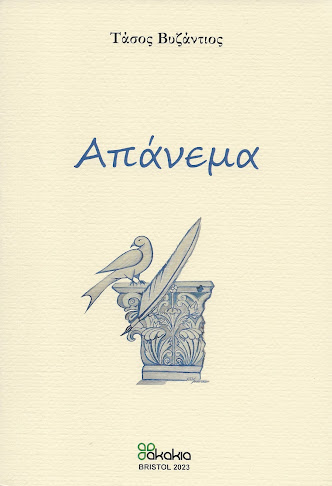Safeguarding Children in the Greek Community Schools
of the Sacred Archdiocese of Thyateira & GB
 |
| Photo by Alexios Gennaris |
Στο προχθεσινό Ιερατικό Συνέδριο
της Ιεράς Αρχιεπισκοπής Θυατείρων και Μ.Β. είχα την ευκαιρία να ομιλήσω με το
παραπάνω θέμα, το οποίο έχει αναδειχθεί το τελευταίο διάστημα σε πρώτης
προτεραιότητας θέμα στον χώρο της Αγγλικής αλλά και της Ομογενειακής Εκπαίδευσης.
Η ομιλία μου είχε ως εξής:
Σεβασμιώτατε, Θεοφιλέστατε, Σεβαστοί Πατέρες,
Ευχαριστώ που μου προσφέρατε τη δυνατότητα να απευθυνθώ
στη Σύναξή μας.
Θα ήθελα να μου επιτρέψετε να ομιλήσω με αποκλειστικό
θέμα την Εκπαίδευση των παιδιών μας στα Ελληνικά Παροικιακά Σχολεία μας. Επειδή
η σχετική επιχειρηματολογία και η ορολογία είναι στην αγγλική γλώσσα, για τον
λόγο αυτό θα ομιλήσω στην αγγλική.
Ι would like to talk to you briefly
about our Greek Community Schools and the challenges that lie ahead of us,
because of the new legislation implemented in all educational institutions in
the UK, since the beginning of September 2019. The general theme of this
legislation is: Safeguarding Children in Education.
Before I continue, only
because we need to be fully aware of the seriousness of the matter, allow me to
inform you that we already had an incident, that we need to make sure that it
doesn’t happen again. The largest Independent Greek School in London (with
about 400 students) was recently forced to close down because there were some
Safeguarding issues that were not addressed at that School.
What is it all
about? I shall only read a few lines from the document that is 110 pages long!
The UK Government
has produced the so called «statutory guidance from the Department for
Education… Schools and colleges in England must have regard to it when carrying
out their duties to safeguard and promote the welfare of children. For the
purposes of this guidance, children includes everyone under the age of 18».
Then the document
continues:
«We use the terms
“must” and “should” throughout the guidance. We use the term “must” when the
person in question is legally required to do something and “should” when the
advice set out should be followed unless there is good reason not to».
What are the
specific topics that we should be aware of, in relation to this new
legislation?
Just in titles they
are as follows:
-
Safeguarding information for all staff
-
Indicators of abuse and neglect
-
Bullying
-
The management of safeguarding
-
The responsibility of governing
bodies, proprietors and management committees
-
Safer recruitment
-
Recruitment, selection and
pre-employment vetting
-
Types of check (DBS and other)
-
Allegations of abuse made against
teachers and other staff
-
Duties as an employer and an employee
-
Child Sexual Violence and Sexual
Harassment
-
Responding to reports of sexual
violence and sexual harassment
-
Safeguarding leader and their role
-
Policies (we shall need to produce
policies for all safeguarding matters)
Now that we are in
some -at least general- way aware of the current challenges we are facing, I would
like to offer, if I may, some suggestions, as we shall have to respond
immediately to the call of the UK Government for Safeguarding Children in ALL
areas of our activity.
1). We need to call
an urgent meeting of the Executive Committee of the
Central Educational Council of our Archdiocese and debate this and related
matters.
2). It would be
useful and quite beneficial to arrange an Educational Conference of the same
Council, in order to bring together all the Greeks Schools that operate under
the auspices of our Archdiocese, listen to them, inform them of the steps that
they have to follow and make them aware of the seriousness of our work and
educational activity.
3). We may also
need to address within our Archdiocese the issue of safeguarding children in
other areas, such as in the Church, in the Holy Sanctuary, in our Youth Clubs,
in our Summer camp, etc…
4). In each School
we are now obliged to have appointed a person as safeguarding leader. We may
have to look into the question of a supervisor of those leaders, who may
possibly be a full time Educational Coordinator, a person who will dedicate
time and effort into working all of their time with the Greek Schools of our
Archdiocese, in order to implement the policies that will be set by the Executive
Committee of the Central Educational Council of our Archdiocese.
I can give even
more suggestions, but I prefer to stop here, so others may have the opportunity
to propose their valuable ideas as well.
Many thanks for
listening.
Fr. Anastasios D. Salapatas
31st October 2019












































No comments:
Post a Comment